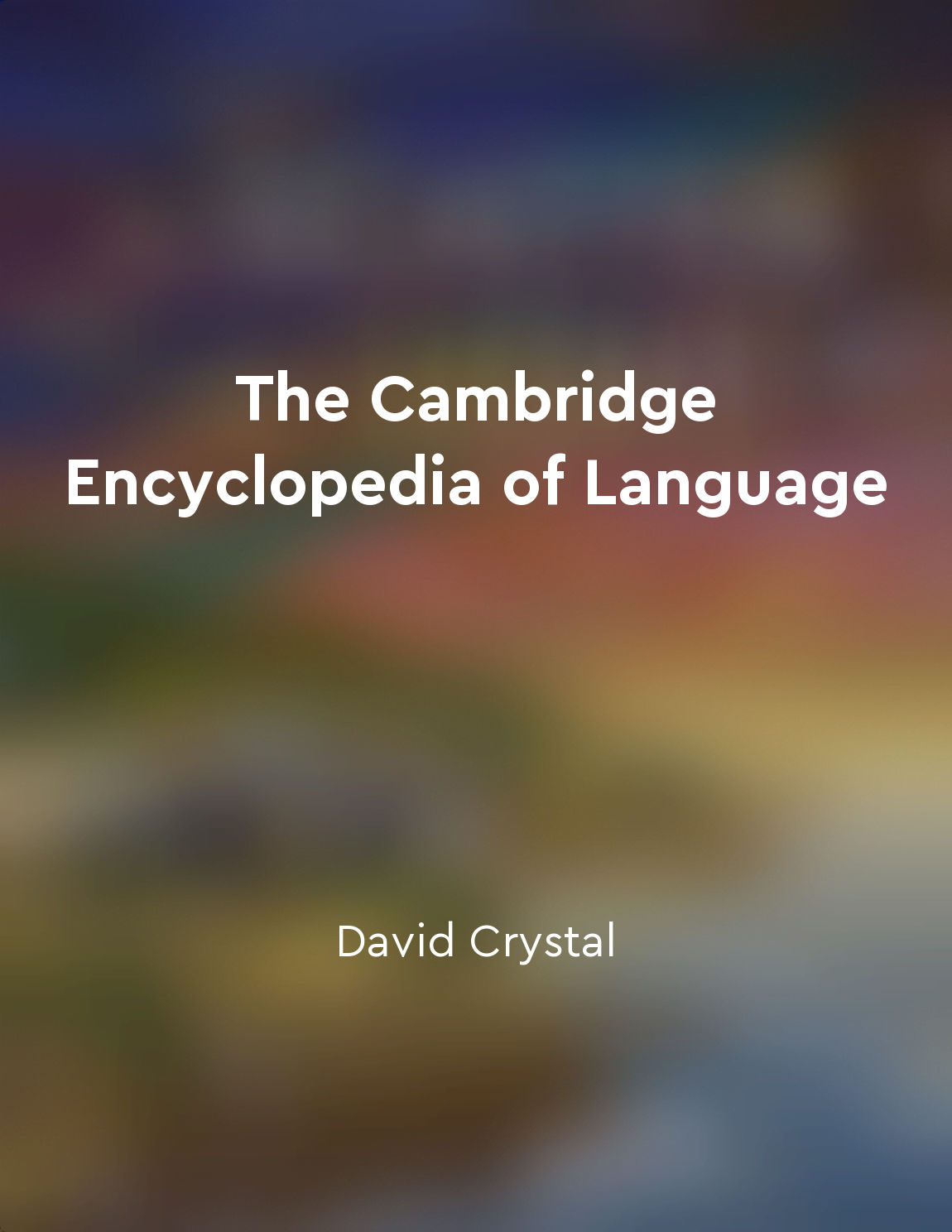Every language has its own unique set of rules and conventions from "summary" of The Cambridge Encyclopedia of Language by David Crystal
Languages are complex systems that differ in numerous ways. One of the key distinctions is the set of rules and conventions that govern each language. These rules dictate how sounds are combined to form words, how words are combined to form sentences, and how meaning is conveyed through the use of grammar and syntax. These rules and conventions are not arbitrary; they are the result of centuries of evolution and development within each language community. They reflect the unique history, culture, and worldview of the people who speak that language. As a result, each language has its own distinct characteristics that set it apart from all others. For example, English is known for its ...Similar Posts
Negation is expressed differently in Spanish
In Spanish, negation is expressed differently than in English. Instead of using "not" to negate a verb, Spanish often uses the ...
Communication styles vary among individuals
Communication styles vary among individuals due to a variety of factors that influence how people express themselves and intera...

Subjunctive mood in Spanish is used for expressing doubt, desire, or uncertainty
The subjunctive mood in Spanish is a verb form that is used to express doubt, desire, or uncertainty. It is often used in situa...
Systems interact
The concept of systems interacting is fundamental to understanding the universe. Everything in the universe is interconnected, ...
Build confidence in conversing in Telugu language
Developing the ability to speak Telugu fluently is an essential skill for anyone looking to communicate effectively in the lang...

Reflexive verbs in Spanish indicate actions that reflect back on the subject
Reflexive verbs in Spanish are a unique feature of the language, indicating actions that reflect back on the subject. These ver...

